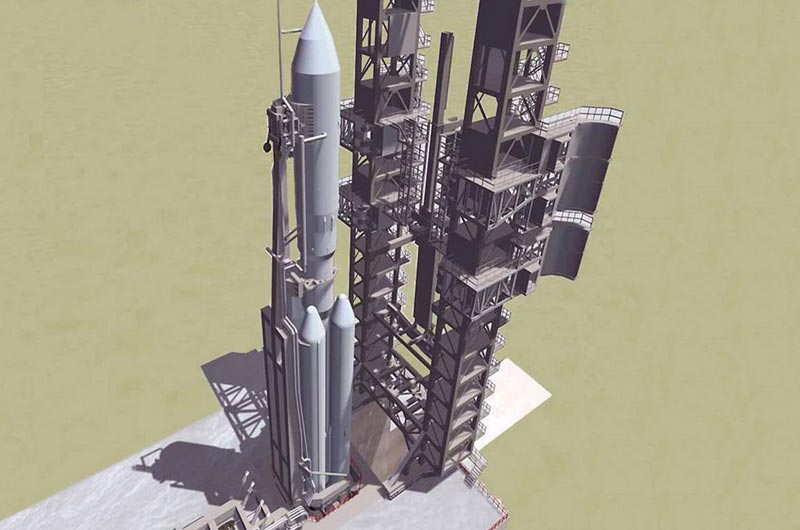
A glitch has forced Russia to postpone today's (June 27) highly anticipated first flight of its new Angara rocket, according to media reports.
The Angara was scheduled to blast off today from Plesetsk Cosmodrome in northwestern Russia, but automated control systems detected a problem of some sort and aborted the launch during the final countdown, the news agency Reuters reported. The launch has been delayed by at least 24 hours.
Russia has been working on the Angara rocket for more than 20 years, with the goal of securing the nation's access to space with a truly homegrown rocket.
"This is the first launch vehicle that has been developed and built from scratch in Russia," said Igor Lissov, an expert with the trade journal Novosti Kosmonovatiki, according to Reuters. "Everything else we have is a modernization of our Soviet legacy."
Angara is designed to lift off from Plesetsk as well as Vostochny Cosmodrome, a facility now under construction in the Russian Far East. Russia wants to reduce its dependence on Kazakhstan's Baikonur Cosmodrome, currently the site of all of the nation's manned space launches and many of its unmanned efforts. (Russia has had to rent Baikonur since the Soviet Union dissolved in the early 1990s.)
Follow Mike Wall on Twitter @michaeldwall and Google+. Follow us @Spacedotcom, Facebook or Google+.
Get the Space.com Newsletter
Breaking space news, the latest updates on rocket launches, skywatching events and more!
Join our Space Forums to keep talking space on the latest missions, night sky and more! And if you have a news tip, correction or comment, let us know at: community@space.com.

Michael Wall is a Senior Space Writer with Space.com and joined the team in 2010. He primarily covers exoplanets, spaceflight and military space, but has been known to dabble in the space art beat. His book about the search for alien life, "Out There," was published on Nov. 13, 2018. Before becoming a science writer, Michael worked as a herpetologist and wildlife biologist. He has a Ph.D. in evolutionary biology from the University of Sydney, Australia, a bachelor's degree from the University of Arizona, and a graduate certificate in science writing from the University of California, Santa Cruz. To find out what his latest project is, you can follow Michael on Twitter.










